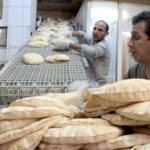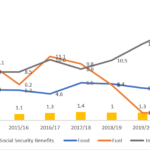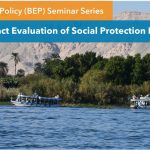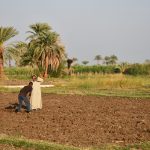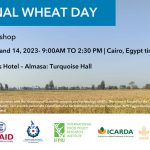Bread prices have long been a sensitive political issue in Egypt. In 1977, President Anwar Sadat cut the subsidies, triggering protests known as the “bread intifada”—ultimately forcing him to roll back his subsidy reform. In 2011, Egyptians took to the streets protesting the regime of President Hosni Mubarak with slogans calling for “bread, freedom, and social justice.” In 2017, Egyptian Ministry of Supply proposals to reduce the state-sponsored provision of bread from up to 4,000 to 500 loaves per bakery provoked large-scale protests across the country.
Navigating Energy Subsidy Reforms in Times of Tight Budgets and High Inflation: Balancing Growth, Equity and Social Protection in Egypt
Energy costs are on the rise in Egypt and shortages of electricity have resulted in scheduled power outages since August 2023. Understanding the trade-offs inherent in the energy subsidy system can help policymakers to chart the best course in a difficult economic period.
BEP Seminar Series LAUNCH EVENT: Impact Evaluation of Social Protection Programs
Event Summary Blog By Sarah Shnouda, Adham Hamdy, and Dalia El Sabbagh Introduction The Middle East and North Africa (MENA) region is witnessing a decline in food security due to the repercussions of the wars in Ukraine, the war in Sudan, the protracted crises in Yemen, and the state of global inflation of food prices, […]
NEW PUBLICATION: Digital tools and agricultural market transformation in Africa: Why are they not at scale yet, and what will it take to get there?
Despite enthusiasm for the potential of digital innovations to transform agricultural markets in Africa, progress made thus far has been limited to small-scale experiments that often fail to scale up. Realizing the full potential of digital innovations – tools, technologies, applications, and services – in Africa requires not just further development of these solutions at meaningful scales, but also more nuanced evidence from both successful and unsuccessful scaling efforts
National Wheat Day | 2-day workshop
The Academy of Science, Research and Technology (ASRT) and the International Food Policy Research Institute (IFPRI) are organizing a workshop under the title of "National Wheat Day". The workshop will be held over two days, on February 13th and February 14th, at the St-Regis Al-Massa Hotel in the New Administrative Capital.
- « Previous Page
- 1
- 2
- 3
- 4
- 5
- …
- 17
- Next Page »
